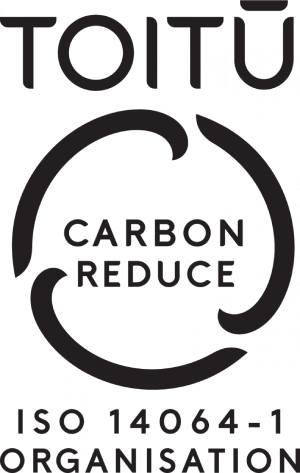Chief Executive’s overview
The Department of the Prime Minister and Cabinet’s overarching objective is to work to achieve good government. At an administrative level the department provides the constitutional and institutional glue that underpins the role of executive government within our system of parliamentary democracy. The department provides a range of support services to the Governor-General, the Prime Minister and ministers. Wide-ranging assessments and policy advice provided to the Prime Minister assist her in leading the government and serving effectively as chair of the Cabinet, and in conducting the day-to-day business of the government. The department has a key leadership role, with Treasury and State Services Commission, in relation to the management of the state sector.
A number of changes to the role of the Department of the Prime Minister and Cabinet are foreshadowed in this Statement of Intent, reflecting higher expectations from the government on policy leadership, cross-government collaboration and effectiveness, and ongoing security challenges. These changes will build on, and enhance, the existing core roles of the department in providing targeted, coherent policy advice and effective administrative support to the Governor-General, and to the Prime Minister and ministers, through the Cabinet system.
The government has put sustainability at the centre of its strategic agenda, underpinning its three priority themes (economic transformation, families – young and old, and national identity). DPMC’s Policy Advisory Group (PAG) will continue to play a key role in ensuring that sustainability and the three themes are reflected in the priorities of departments and their associated entities. A chief executives’ sustainability group has been established, chaired by DPMC, and is charged with taking forward the overall sustainability programme. Local government, business, research organisations, and local communities will all have a part to play as New Zealand moves along this path.
The review of central agencies (Treasury, State Services Commission, and DPMC) undertaken in late 2006 identified steps necessary to lift the performance of the state sector. The need for a stronger leadership role for central agencies was a key finding. This will be achieved through a greater focus on the priority tasks of government, stronger inter-agency collaboration, and a greater emphasis on coming to a joint central agency view on priority issues and approaches for dealing with them. We recognise the need to improve the effectiveness of our communications and leadership across the state service so that we can better assist the government in attaining its objectives. We shall be active in taking joint responsibility for lifting the performance of the three agencies in relation to the state sector as a whole.
The department has a particular role to play in supporting State Services Commission as it seeks to achieve the Development Goals for the State Services, and Treasury as it aligns resources to the government’s policy priorities.
Management of security risks across government remains a key leadership role for the Domestic and External Security Group (DESG). Through the Officials’ Committee on Domestic and External Security (ODESC), we shall be working more closely with intelligence and security agencies to ensure coherence of action that is based on risk assessment and an improved understanding of roles. We shall also actively pursue emergency preparedness in events such as earthquakes, volcanic eruptions, pandemics and tsunami; and this will include joint exercises across central and local government. In addition, ongoing vigilance at the border will be required across agencies to ensure that security risks are identified and mitigated in relation to issues such as illegal migration, smuggling, transnational crime, and identity fraud. A further focus of work over the coming year will be on business continuity risks: ensuring that support can be maintained for the Prime Minister, and for the government more generally, during times of major disruption.
Supporting the Governor-General, the Hon Anand Satyanand, in the functions of his office is the focus of Government House, with support also provided from Cabinet Office. The Governor-General will be undertaking an extensive community programme throughout New Zealand, as well as official travel overseas, as he represents New Zealand as its Head of State. DPMC seeks to ensure the Governor-General has the right support in place to perform his role effectively - through the staff who work for the Governor-General and through the department’s role in preserving and enhancing the two Government Houses, in Wellington and Auckland.
It is critical to the achievement of our role that we continue to attract and retain staff of high calibre. Without top-quality staff, who are well motivated and managed, we will find it difficult to sustain trust and confidence in our advice and judgement, and in our departmental credibility. Our ongoing need is for strong analytical and critical abilities, and excellent relationship and interpretation skills, along with a strong ethic of public service for New Zealand. We shall continue to invest in staff, so that we lift professional capability, and in our electronic infrastructure and management systems, so that staff are well supported in doing their job. DPMC is a small department, with limited resource levels. Accordingly, we require from our staff flexibility, responsiveness, and high levels of skill, so that the demanding and changing workload can be managed effectively. Management will continue to give priority to capability and infrastructure development, and it will seek opportunities to deliver cost-effectively with other agency clusters.
Implementation and evaluation will also be a focus for the department. At the same time, DPMC will need to retain its capacity to respond at any time to unforeseen issues that might arise - whether those are new policy challenges, emergencies, or changes in our external environment. Because the department occupies a privileged place close to the centre of our system of government, we must work to ensure that we are always able to provide the quality of support that the Prime Minister and her ministerial colleagues deserve in the service of New Zealanders. The staff of DPMC are committed to working ever more effectively to discharge that responsibility.
Maarten Wevers, CNZM
Chief Executive
May 2007

